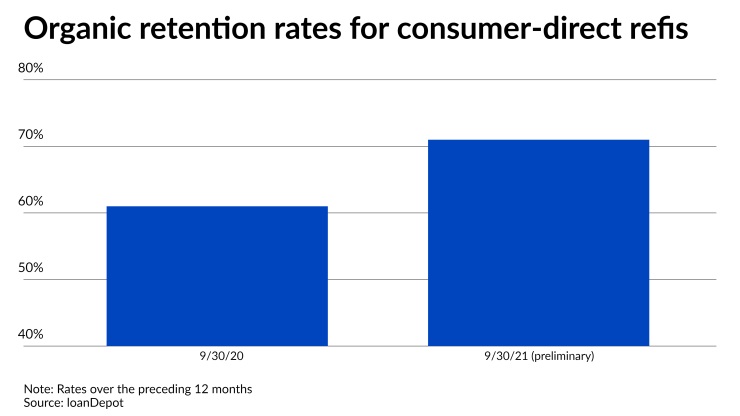LoanDepot will cease outsourcing the servicing of loans in Ginnie Mae securitizations and will manage the process internally, the company said in an announcement
The company plans to hire an unspecified number of people in servicing as a result of the shift, with a particular focus on recruiting people for “customer-facing” positions.
News of the change followed the company’s earlier receipt of the government agency’s approval. It also is in line with loanDepot’s earlier decision to start retaining the servicing of loans sold to two government-sponsored enterprises.
“We’re relying less on third-party subservicing partners, which streamlines the process and allows us to work directly with customers,” said Dan Binowitz, loanDepot’s executive vice president of servicing and capital markets operations, in a press release.
CEO Anthony Hsieh had signaled earlier that the company was working to scale back outsourcing in this area, noting in

The company’s move toward hands-on involvement in Ginnie servicing is in contrast to a publicly-traded competitor that’s distancing itself from it. HomePoint recently
The servicing of loans guaranteed by other government agencies and bundled into Ginnie-insured securitizations generally has fewer players than the GSE market, but offers higher compensation for the relatively more complex and highly regulated work involved.
Subservicers, which can spread the expense of operations out over larger portfolios, can be a more cost-effective option and also often have specialized retention units, but mortgage companies have to be willing to cede some control of operations and potentially be equipped to manage multiple counterparties if they outsource.
Both Ginnie and
The company’s announcement came the same day Ginnie’s first permanent president in several years




